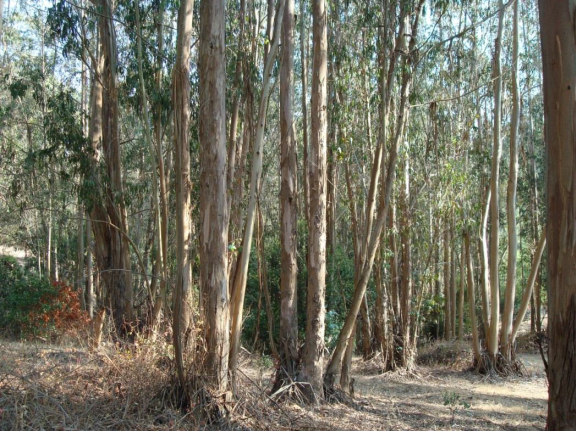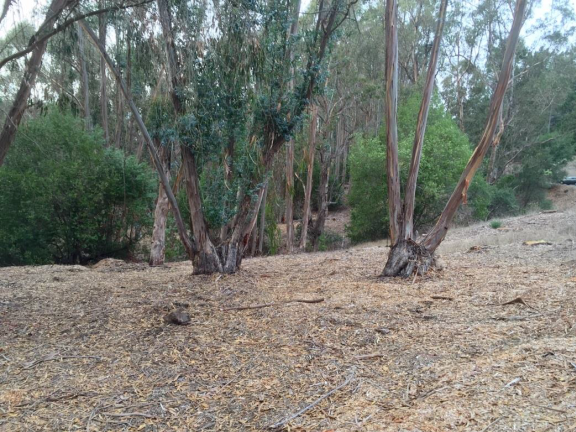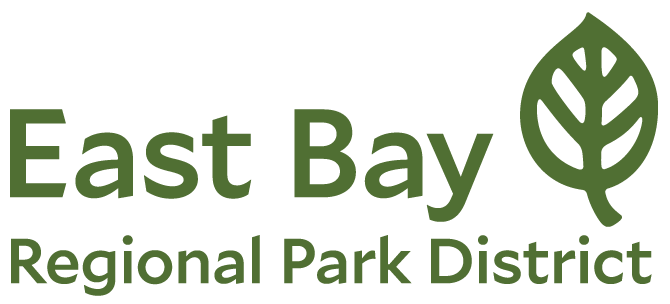Board Accepts $4.65m FEMA Grant for Fire-Hazard Reduction
By EBRPD Public Affairs
The East Bay Regional Park District took a major step forward this week in its long-term public safety efforts to reduce fire hazards in the East Bay Hills by accepting $4.65 million in federal grants to reduce dangerous trees and foliage in the hills from Oakland north to Richmond.
At its regular meeting, the Board of Directors accepted the grant from the Federal Emergency Management Agency to continue implementation of the Park District’s Wildfire Hazard Reduction and Resource Management Plan (WHRRMP.) Adopted in 2010, the WHRRMP was created -- after thorough research, review and public input -- as a guiding tool for fuels management approaches throughout the East Bay Regional Parklands.
The FEMA grants will allow the Park District to selectively remove or thin non-native trees and brush on hundreds of acres in 11 regional parks: Anthony Chabot Regional Park, Claremont Canyon Regional Preserve, Huckleberry Botanic Regional Preserve, Lake Chabot Regional Park, Leona Canyon Regional Open Space Preserve, Miller/Knox Regional Shoreline, Redwood Regional Park, Sibley Volcanic Regional Preserve, Sobrante Ridge Regional Preserve, Tilden Regional Park, and Wildcat Canyon Regional Park that are adjacent to tens of thousands of nearby residents and businesses.
The goals of the Park District’s Wildfire Hazard Reduction and Resource Management Plan, says EBRPD Fire Chief Dan McCormick, are to “reduce fire hazards on District-owned lands in the East Bay's wildland-urban interface while maintaining and enhancing ecological values for native plant and wildlife habitat.” He added that District fire crews are out every day in various regional parks to “do our part to protect people and property” from wildfire threats. Preserving the aesthetic landscape values for park users and neighboring communities is also a significant priority as well as encouraging homeowners to keep their properties fire safe.
“These are the heavily urbanized areas that have been devastated with the loss of life and properties due to wildfires over the years,” said Park District General Manager Robert Doyle, noting that 25 people died and more than 3,000 homes were destroyed in the 1991 Oakland/Berkeley Hills firestorm. “Given the very serious drought we are continuing to face, this FEMA funding is urgent and frankly, can’t come soon enough.”
“Our agency and others care deeply about the land we manage, the protection of wildlife, the environment, and the safety of our park users and employees,” Doyle said. “We also have a responsibility to manage the native and non-native forests and grasslands and protect lives and property. We look forward to continuing our efforts to make the East Bay Hills safer for everyone.”
Over the past seven years, the Park District has spent over $6.6 million removing dead or seedling trees in the East Bay hills to protect surrounding communities. The District’s plan – drawn up in conjunction with the stewardship department as well as environmental and regulatory agencies - also allows for closely supervised young men and women fire crews from Civicorps and Student Conservation Association to assist with the grueling handwork necessary in the fuels reduction efforts. These jobs provide valuable work skills for gaining full-time employment at the Park District and other organizations.
The Park District has also been removing hazardous trees and brush in other parks along the 25-mile East Bay Hills ridgeline, from Wildcat Canyon in Richmond to Anthony Chabot in Oakland and Castro Valley. Much of the work has been funded by Measure CC, a $12-per-year parcel tax to improve infrastructure and reduce fire hazards in some of the Park District’s oldest and most heavily used parks.
The East Bay Regional Park District is a system of beautiful public parks and trails in Alameda and Contra Costa counties east of San Francisco Bay, established in 1934. The system comprises 119,000 acres in 65 parks including over 1,250 miles of trails for hiking, biking, horseback riding, and nature learning.
Before-and-after photos showing a thinned eucalyptus stand:

Before

After





